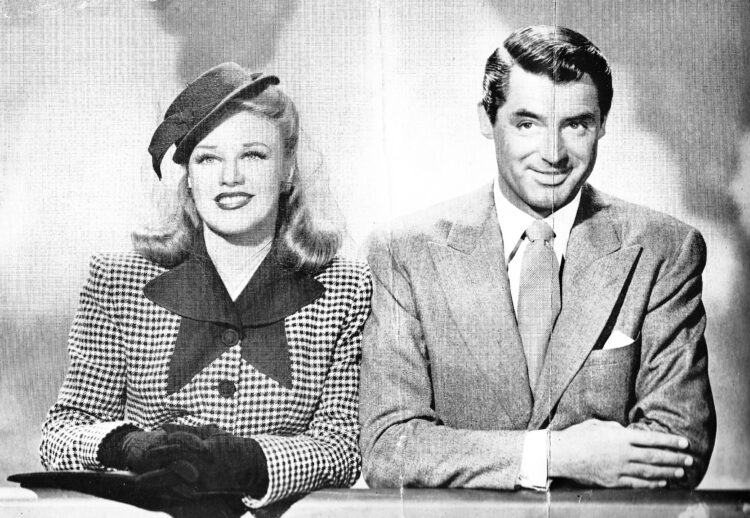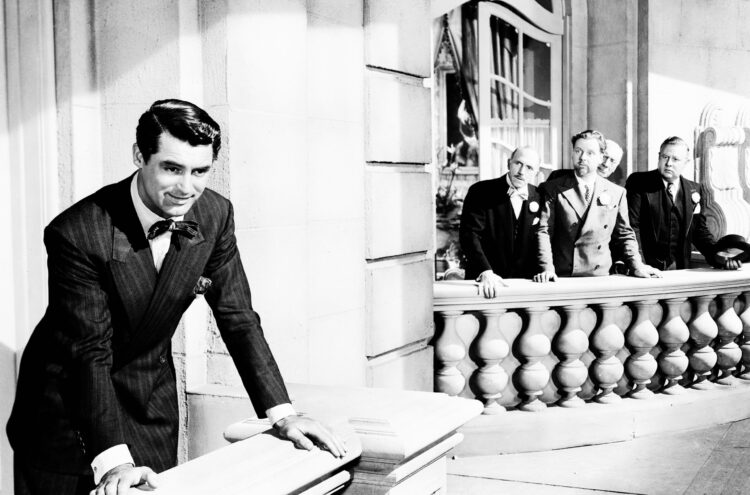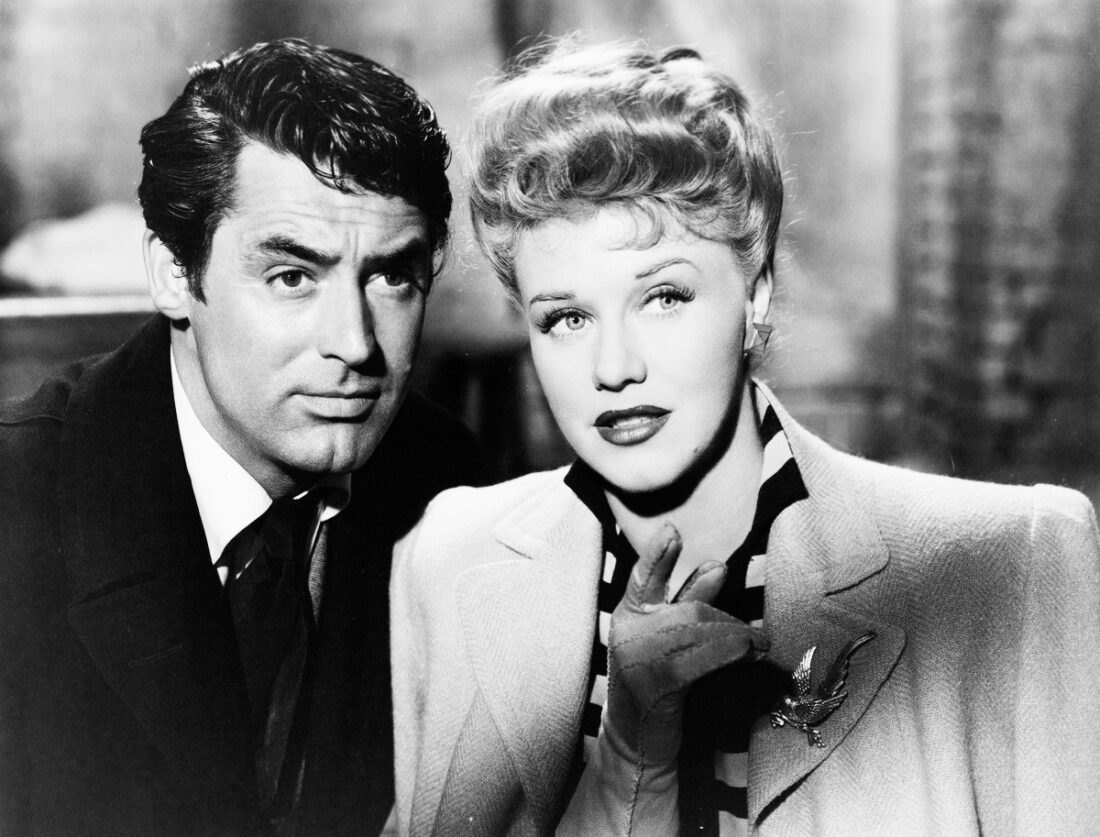Three years into World War II, with German armies still on the march and intent on conquering the European continent, RKO Radio Pictures released Once Upon A Honeymoon, a romantic drama with dark overtones screened on the Turner Classic Movies channel recently.
Directed by Leo McCarey and starring that inimitable Hollywood pair, Cary Grant and Ginger Rogers, it takes place mainly in Paris and Warsaw before and after they were overrun by Nazi invaders.
Archival clips of German Chancellor Adolf Hitler arriving in Vienna and visiting the Eiffel Tower in Paris add a menacing touch of reality to the proceedings.
The Nazi persecution of Jews emerges as one of its minor themes. At one point, Grant, in his role as an American broadcast journalist, fears that he and Rogers, his love interest, will be mistaken for Jews.
I’m taking a guess, but I suspect this was his first and last movie during which he alluded to Jews.
Grant portrays Pat O’Toole, a roving foreign correspondent based in Vienna in 1938, the year Germany annexed Austria in the infamous Anschluss. Vienna is bedecked with swastikas when it initially appears on screen.
Suave and charming, O’Toole has his eye on Katie O’Hara (Rogers), an Irish American burlesque queen posing as a socialite under the double-barrelled name of Katherine Butt-Smith. A consummate gold digger who speaks with an affected British accent at various moments, she is due to marry Baron Franz Von Luber (Walter Slezak), a wealthy Austrian aristocrat who masquerades as an anti-Nazi, but who is actually a dedicated Nazi.

Grant and Rogers deliver credible performances, though the material they work with tends to be on the flimsy side.
O’Hara, being naive, believes that her fiancé hates Hitler. O’Toole has no illusions about Von Luber, the object of his reporting assignment, and warns O’Hara she is marrying the “wrong guy.” Smitten by her, he tries to break up O’Hara’s transactional relationship with Von Luber, who gloats that the Nazi takeover of Austria was a “great day.”
O’Toole follows the newly-wed couple to Warsaw. Meeting O’Hara in the lobby of a luxury hotel, he berates her for having hooked up with Von Luber. In an appeal to her common sense, he advises her to dump him. If she waits too long, “happiness might pass you by.”
In the meantime, the conniving baron is busy selling defective weapons to General Borelski (Albert Basserman), a key figure in the Polish armed forces. Having realized he was cheated, Borelski pours out his heart to O’Toole. “You have stumbled upon a plot to ruin Poland,” he says.
Von Luber claims he seeks to preserve peace between Poland and Germany, but he is lying. In the next segment, O’Toole is seen broadcasting the fall of Warsaw under relentless German bombardment.
During the following scenes in the Polish capital, Anna (Natasha Lytess), O’Hara’s German maid, lays bare her anguish. “We’re Jews,” she confesses, referring to herself and her two children, Jacob and Sarah.
The German passport she carries is stamped with a red J (Jude), which means her life is in jeopardy. Recognizing her existential problem, O’Hara offers to switch passports with her. “Go some place where it’s safe,” advises O’Hara. To which Anna responds, “Where?” In distress, O’Hara nods her head, empathizing with her plight.
By this juncture, O’Hara no longer has illusions about her husband. In the parlance of the day, she is “wise” to him. As far as O’Hara is concerned, she has stopped being a baroness. O’Toole, a tolerant fellow, is proud of O’Hara’s humanitarian gesture to Anna. But since O’Hara is in possession of Anna’s passport, she is arrested, along with O’Toole, by the Nazis.

“Now they’re going to think we’re Jewish,” he says in a voice drenched with desperation. As he speaks, the screen is filled with the plaintive, heart-rending sounds of the Jewish prayer for the dead.
While the fate of Anna and her kids is left unknown, O’Toole and O’Hara manage to leave war-torn Poland just in the nick of time thanks to the U.S. consul in Warsaw.
In most respects, Once Upon A Honeymoon is an odd hybrid, an unsettling melange of comedy and tragedy and a cinematic relic from the past set during one of the darkest periods in Europe. At times, it is downright silly and corny, which means it has not necessarily aged well. But on the whole, it is reasonably entertaining.
